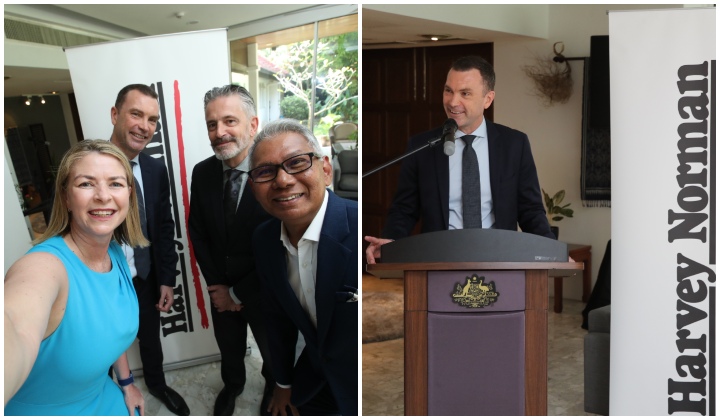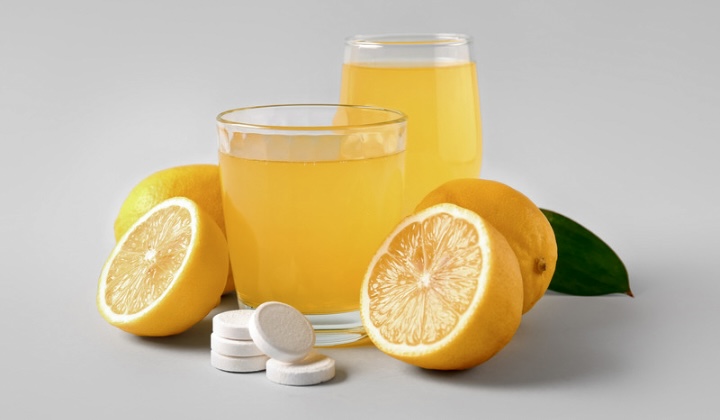Let’s Not Kid(ney) Around
Get screened, stay informed and eat healthily, Malaysians urged.
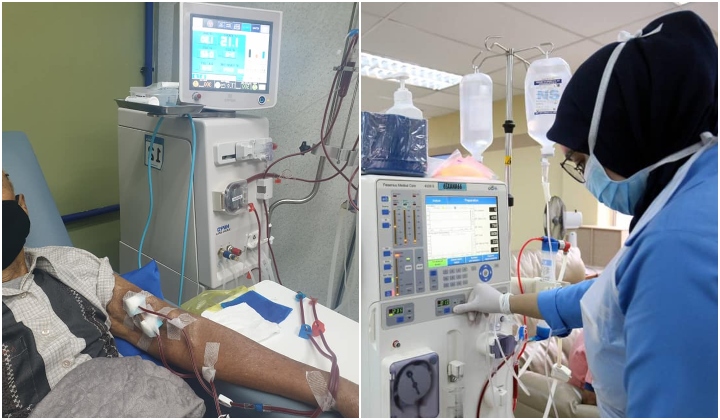
Subscribe to our Telegram channel for the latest stories and updates.
Khairul Syazwali Taib was in the prime of his life – physically active, playing rugby and running half-marathons. With no warning signs in sight, an episode of gout prompted him to take a blood test. It was then that he was diagnosed with Polycystic Kidney Disease (PKD), a genetic condition that causes numerous cysts to grow in the kidneys − leading to kidney failure.
“My kidneys had failed and was only functioning at 9%!” the 35-year-old exclaimed, recalling his devastation at this discovery. It is not uncommon to have PKD for years without knowing it, and it is known to develop in patients between 30 and 40 years old.
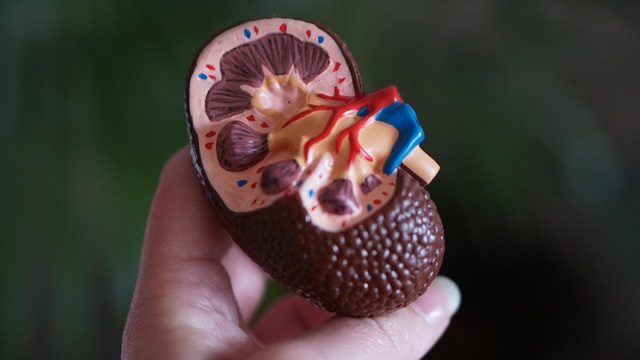
Get screened (annually)!
The National Kidney Foundation of Malaysia (NKF) would like to remind Malaysians − though many of us are aware of the seriousness of Chronic Kidney Disease (CKD), how many of us get screened annually to keep our kidney health in check? Because it is symptom-free in its early stages, it is often missed. However, with early detection and if managed appropriately, the rate of deterioration in kidney function can be reduced by as much as 50%, and may even be reversible.
That’s why both screening and early detection are crucial!
“Malaysians should get tested and screened annually, even if you are without symptoms. By the time I discovered I had PKD, my kidney function had reduced to just 9%,” said Khairul Syazwali. He shared his CKD journey at the MyBuahPinggang Webinar in Kuala Lumpur recently.
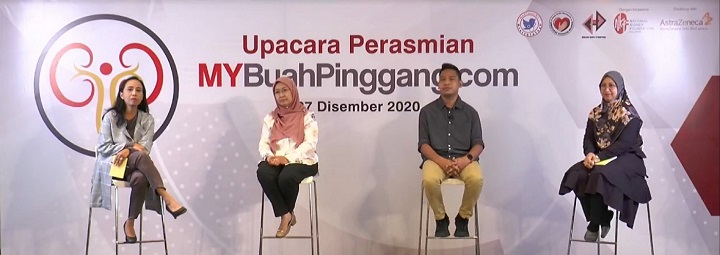
(Credit: NKF Malaysia)
Nephrologist and Internal Medicine Specialist in Seremban’s Tuanku Ja’afar Hospital, Dr Lily Mushahar who was also a panellist at the webinar warns “It’s a silent killer with little or no warning signs until a later stage!”
Annual screening for early detection is crucial: at least once a year: blood test (renal function test) or urine test (to detect protein or blood in the urine). “Most CKD cases (65 to 70%) are from among diabetic patients, yet there are others who get it even without any real symptoms,” she added. Evidently, as with Khairul Syazwali, it’s not just a disease of the elderly.
In fact, globally, Malaysia has been reported as having the second-highest incidence rate of kidney failure affecting young adults. Hence, the annual screening for early detection is crucial since as of 2018, the prevalence rate of CKD in Malaysia stood at 15.48% compared to just 9% in 2011.
Kidney from a kin
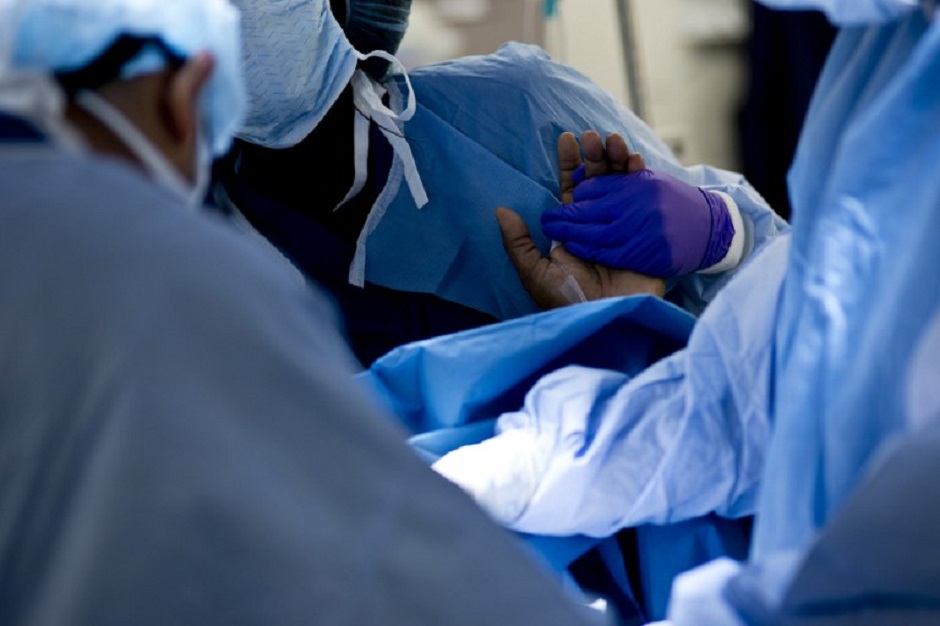
(Credit: Brendan SMIALOWSKI / AFP)
Khairul Syazwali’s story continues on a high note after undergoing dialysis and a successful kidney transplant − thanks to his older brother who donated a kidney. In fact, unknown to him and the rest of his family, his brother had approached his doctor personally to volunteer as a donor.
“I was really surprised and overcome with joy and gratitude when I discovered from my doctor that my brother had stepped forward to be an organ donor,” he added.
Demands unmet
Kidney transplant is still the most effective and preferred treatment for End-Stage Renal Disease (ESRD) patients − offering patients like Khairul Syazwali the possibility of a longer and superior quality of life, as well as lower healthcare costs.
Yet a worrying trend is the low rate of kidney transplantation in Malaysia: three per million population (pmp), compared to Spain (62 pmp) and Thailand (nine pmp). Under the National Action Plan for Healthy Kidneys (ACT-KID) 2018-2025, the government aims to increase the rate of local kidney transplantation to five pmp in three years, by this year.
The waiting game for kidney recipients in Malaysia is unnerving as the organ donation rate for transplants in Malaysia is among the lowest in the world.
Dialysis: a lifeline of hope
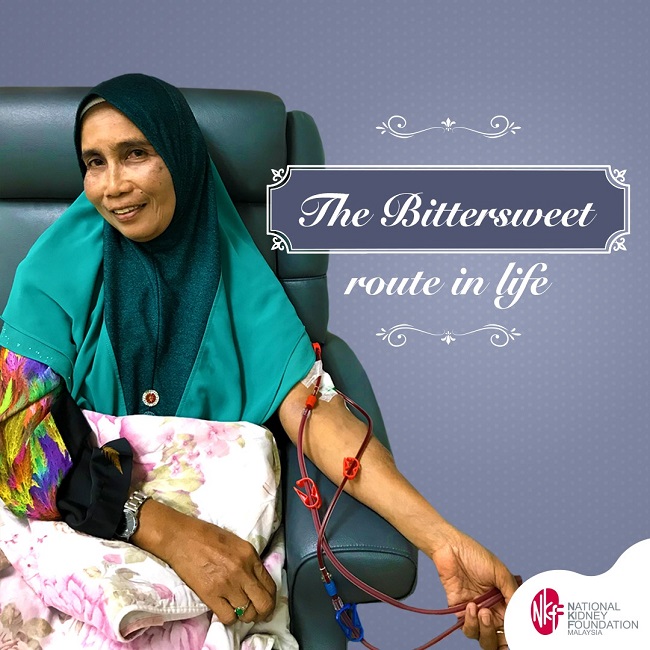
Another lifeline for CKD patients waiting for transplant is dialysis. It is the only active treatment choice for approximately 98.7% of the patients with ESRD. Haemodialysis pumps blood out of the patient’s body to an artificial kidney and returns the blood via tubes connected to the machine. NKF has been providing haemodialysis treatment to CKD patients nationwide for over 30 years now.
Right stuff
A major stumbling block facing healthcare professionals in the battle against CKD is the danger of disinformation. This is alarming since as many as 50,000 CKD patients in Malaysia undergo dialysis, with a significant number of them from the B40 and rural population.
“Before this, there is no dedicated website that offers credible and verified information on kidney disease and its available treatment here across Malaysia especially in rural areas where patients are not as easily accessible to their doctors,” said Dr Bryan Leong Chong Men, a nephrologist at Kulim Hospital, Kedah.
MyBuahPinggang.com, provides content in Bahasa Malaysia for the masses − with access to accurate, practical medical information that is easily understood – minus the scientific jargon, said Dr Khairul Hafidz Alkhair, Chairman of Medical Tweet Association Malaysia (MedTweetMY). The association developed the website with the Ministry of Health Malaysia and University Putra Malaysia’s nephrologists.
The website hopes to address issues particularly pertinent to CKD patients in Malaysia, including the popular myth among Malaysians that taking prescribed medication can lead to CKD, the danger of over-consumption of phosphate-based foods (such as oats) among dialysis patients, and the importance of CKD patients knowing the supplements they consume.
Inspiration in a book
Towards this end, the recent launch of NKF’s Community Organ Donation Drive (CODE): Life book entitled Masih Ada Yang Sayang is timely. It features an anthology of anecdotes from real-life experiences of several CKD patients and nephrologists in Malaysia. The book aims to give hope to CKD patients and their loved ones, while inspiring members of the public to take an interest in understanding kidney health and be open to becoming an organ donor.
So, for now, don’t wait!
Get screened, seek proper consultation from healthcare professionals, and check out MyBuahPinggang.com for credible information on kidney health.
Share your thoughts with us on TRP’s Facebook, Twitter, and Instagram.


